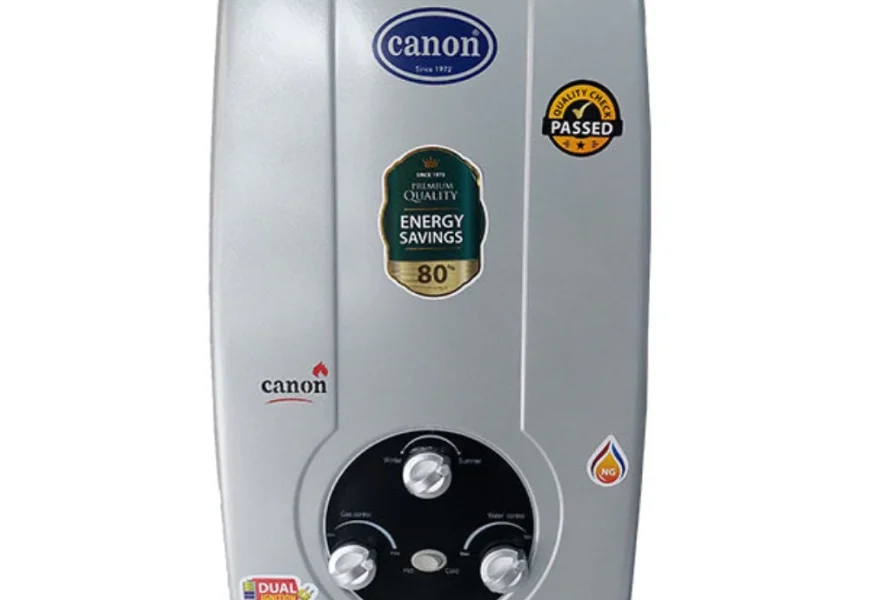Introduction
Geyser water heaters have become an essential appliance in many households, providing a reliable source of hot water for various daily activities. From showering to washing dishes, having access to instant hot water is a convenience that many of us take for granted. However, to truly benefit from your geyser water heater, it’s crucial to understand how to use it effectively. This guide will walk you through everything you need to know about geyser water heaters, from choosing the right model to maximizing efficiency and troubleshooting common issues.
Understanding Geyser Water Heaters
What is a Geyser Water Heater?
A geyser water heater is a device designed to heat water on demand, providing instant hot water for household use. Unlike traditional water heaters that store hot water in a tank, a geyser heats water as it passes through the unit, ensuring a continuous supply without the need for a bulky storage tank.
Types of Geyser Water Heaters
Geyser water heaters come in various types, each suited for different needs and preferences.
Electric Geysers
Electric geysers are the most common type, powered by electricity to heat the water. They are easy to install and use, making them a popular choice for many homes.
Gas Geysers
Gas geysers use natural gas or propane to heat water. They are more energy-efficient than electric geysers and can provide hot water even during power outages.
Solar Geysers
Solar geysers harness energy from the sun to heat water, making them an eco-friendly option. While they have a higher upfront cost, they can significantly reduce energy bills in the long run.
How Does a Geyser Water Heater Work?
Geyser water heaters work by heating water as it flows through the unit. When you turn on a hot water tap, cold water enters the geyser, where it is quickly heated by an electric element or gas burner. The hot water is then delivered to your faucet, ready for use. The absence of a storage tank means that geysers can provide hot water continuously, as long as the unit is running.
Choosing the Right Geyser Water Heater for Your Home
Factors to Consider
When selecting a geyser water heater, there are several factors to consider to ensure you choose the right model for your home.
Water Consumption
Consider the amount of hot water your household uses daily. A larger household with high water usage may require a more powerful geyser with a higher capacity.
Energy Efficiency
Energy efficiency is an important factor, as it directly impacts your utility bills. Look for geysers with high energy efficiency ratings to reduce energy consumption and save money in the long term.
Size and Capacity
The size and capacity of the geyser should match your household’s needs. A unit that’s too small may struggle to provide enough hot water, while an oversized unit may waste energy.
Comparing Different Brands and Models
It’s essential to compare different brands and models before making a purchase. Consider factors such as warranty, customer reviews, and additional features like digital controls or Wi-Fi connectivity. Investing in a reputable brand can ensure the longevity and reliability of your geyser water heater.

Installation Process of a Geyser Water Heater
Pre-Installation Requirements
Before installing a geyser water heater, there are a few pre-installation requirements to consider.
Space and Location
Choose a location with adequate space and ventilation. The geyser should be installed in a well-ventilated area, away from flammable materials, to ensure safety and optimal performance.
Plumbing and Electrical Considerations
Ensure that the plumbing and electrical connections are in place before installation. If you’re installing a gas geyser, you’ll also need a gas line and proper ventilation.
Step-by-Step Installation Guide
Installing a geyser water heater can be a complex process, and it’s recommended to hire a professional for the job. However, if you’re experienced with DIY projects, here’s a basic guide:
- Turn off the power or gas supply.
- Mount the geyser securely on the wall.
- Connect the water inlet and outlet pipes.
- Connect the electrical or gas supply.
- Turn on the water supply and check for leaks.
- Test the unit to ensure it’s working correctly.
Safety Precautions
Always follow safety precautions during installation. Wear protective gear, ensure the area is well-ventilated, and double-check all connections to prevent accidents.
Tips for Efficiently Using a Geyser Water Heater
Setting the Right Temperature
Setting the right temperature is crucial for both comfort and energy efficiency. The ideal temperature setting is usually around 120°F (49°C). This temperature is hot enough for most household needs while minimizing energy consumption.
Reducing Energy Consumption
Reducing energy consumption not only saves money but also extends the life of your geyser water heater.
Insulation
Insulating your geyser and hot water pipes can reduce heat loss, allowing the unit to maintain the desired temperature with less energy.
Timers and Smart Controllers
Using timers and smart controllers can help you manage the operation of your geyser more efficiently. For instance, you can set the geyser to turn off during peak electricity hours and turn it on when needed.
Regular Maintenance Practices
Regular maintenance is key to keeping your geyser water heater running efficiently.
Flushing the Tank
Flushing the tank periodically removes sediment buildup, which can reduce the efficiency and lifespan of the unit.
Checking the Anode Rod
The anode rod prevents corrosion inside the tank. Check it regularly and replace it if it’s worn out.
Inspecting for Leaks
Inspect the unit and surrounding area for any signs of leaks. Addressing leaks promptly can prevent water damage and extend the life of your geyser.
Troubleshooting Common Issues with Geyser Water Heaters
No Hot Water
If your geyser isn’t providing hot water, check the power or gas supply first. If everything seems fine, the heating element or thermostat might be faulty and require replacement.
Water Temperature Fluctuations
Temperature fluctuations can be caused by a variety of factors, including sediment buildup or a malfunctioning thermostat. Flushing the tank and adjusting the thermostat can often resolve this issue.
Unusual Noises
Unusual noises like popping or banging can indicate sediment buildup in the tank. Flushing the tank should eliminate the noise.
Water Leaks
Water leaks can result from loose connections, a faulty valve, or a cracked tank. Inspect the unit to identify the source of the leak and take appropriate action.
Advantages of Using a Geyser Water Heater
Instant Hot Water Supply
One of the main advantages of a geyser water heater is the instant supply of hot water. You don’t have to wait for a tank to heat up, making it a convenient option for busy households.
Energy Efficiency
Geyser water heaters are generally more energy-efficient than traditional storage water heaters, especially when using a model with a high energy rating.
Long-Term Cost Savings
While the initial cost of a geyser water heater may be higher, the long-term savings on energy bills can make it a cost-effective investment.
Disadvantages of Geyser Water Heaters
Higher Initial Cost
Geyser water heaters tend to have a higher upfront cost compared to traditional water heaters. However, this cost can be offset by the energy savings over time.
Maintenance Requirements
Regular maintenance is necessary to keep a geyser water heater running efficiently. This can include tasks like flushing the tank, inspecting components, and replacing worn parts.
Potential Safety Risks
If not installed or maintained correctly, geyser water heaters can pose safety risks, such as gas leaks or electrical issues. Always follow safety guidelines and consider professional installation.
Conclusion
In conclusion, geyser water heaters from alfatah offer a reliable and energy-efficient way to provide hot water for your home. By understanding how they work, choosing the right model, and following proper installation and maintenance practices, you can maximize the benefits of your geyser water heater. Whether you’re considering an electric, gas, or solar model, this guide provides the essential information you need to make an informed decision and keep your unit running smoothly.
FAQs
How often should I service my geyser water heater?
It’s recommended to service your geyser water heater at least once a year to ensure optimal performance and prevent potential issues.
Can I install a geyser water heater myself?
While it’s possible to install a geyser water heater yourself, it’s generally recommended to hire a professional, especially for gas or electric models, to ensure safety and proper installation.
What is the ideal temperature setting for a geyser water heater?
The ideal temperature setting for most households is around 120°F (49°C). This temperature is hot enough for daily use while minimizing energy consumption.
How long does a geyser water heater last?
With proper maintenance, a geyser water heater can last between 10 to 15 years. Regular servicing and prompt repairs can extend its lifespan.
Are there any safety tips I should follow?
Yes, always ensure that the unit is installed in a well-ventilated area, regularly check for leaks, and never block the ventilation openings. If you notice any unusual behavior, contact a professional immediately.
















